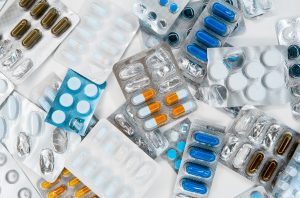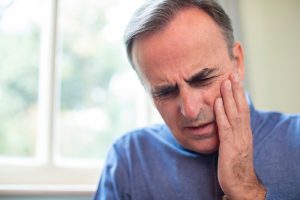Escitalopram oxalate, or Lexapro, is an SSRI commonly used to treat anxiety and depression. Many people wonder whether they can take alcohol while on Lexapro. It is important to note that combining Lexapro with alcohol can result in severe side effects, which can vary depending on the patient and the dosage of medication being taken. Taking Lexapro and alcohol can result in serious side effects that are different from the adverse effects of taking the drug alone.
Normal Side Effects Of Lexapro
To comprehend the contrast in side effects of drinking while on Lexapro, it’s essential to understand the typical side effects of the medication without alcohol. Initially, those taking Lexapro may experience various side effects, some of which may be severe.
The common side effects of the drug can include:
- Throwing up
- Diarrhea
- Runny nose
- Decreased appetite
- Trouble sleeping
- Dry mouth
- Dizziness
- Headaches
- Less interest in sex
- Runny nose
- Sleepiness
- Nausea
- Anxiety
- Panic attacks
Side Effects Of Lexapro and Alcohol
Lexapro and alcohol can have various adverse consequences, some of which can be severe. These side effects differ from the usual ones experienced. Mixing the two can make you feel less alert, drowsy, and coordinated. In rare cases, violent or deadly side effects can occur. However, typically, drinking while taking Lexapro makes it harder to perform daily tasks.
What Happens When You Use Lexapro with Alcohol?
When alcohol and Lexapro are consumed together, the effects can vary depending on dosage, frequency of use, and individual body chemistry. This means everyone’s experience will differ when taking alcohol and Lexapro. However, combining the two can increase the sedative effects of both substances, ultimately leading to drowsiness, dizziness, and impaired coordination. Knowing this can increase the risk of falls and accidents, especially when driving or operating machinery, is essential.
Alcohol and Lexapro can also heighten the side effects of each substance. For example, both can cause nausea, vomiting, and diarrhea. Combining them can intensify these symptoms, leading to severe discomfort and dehydration.
Alcohol and Lexapro can also lead to mood changes and behavioral issues. While Lexapro is meant to improve mood and alleviate depression, alcohol is a depressant that can heighten negative emotions and lead to reckless behavior. Combining the two can lead to unpredictable and dangerous behavior.
It’s important to understand that long-term use of alcohol and Lexapro can lead to serious health consequences, including liver damage and kidney problems. These risks are heightened for individuals with a history of substance abuse or liver disease. This is why it’s always important to talk with a healthcare professional before drinking while taking Lexapro.
When Can I Start Drinking If I’m No Longer Taking Lexapro?
Are you stopping Lexapro and wondering when it’s safe to begin drinking again? The decision to start taking alcohol after discontinuing Lexapro should always be made in consultation with a healthcare provider. This is because the duration and severity of Lexapro withdrawal symptoms can vary from person to person.
Withdrawal from Lexapro can take several weeks or longer, with symptoms such as irritability, anxiety, insomnia, and mood swings. Therefore, it is crucial to allow sufficient time for the medication to fully clear from the system before consuming alcohol, as it can interact with residual traces of the drug and potentially worsen withdrawal symptoms.
Generally, healthcare providers recommend waiting until the medication no longer affects your behavior before consuming alcohol. This is typically around six days.
Once the withdrawal period has passed, it is vital to proceed with caution when reintroducing alcohol into your routine. Starting with a small amount of alcohol and gradually increasing the amount consumed can help prevent adverse effects and can help to avoid alcohol addiction.
Additionally, people should be aware of any potential interactions between alcohol and any other medications they may be taking.
It is vital to note that excessive alcohol consumption can adversely affect mental health, particularly in people with a medical history of depression or anxiety disorders. While moderate alcohol intake may be safe for some individuals, others may find it worsens their symptoms. Therefore, prioritizing mental health and talking to your doctor is always important.
Can You OD On Lexapro and Alcohol?
Lexapro and alcohol can increase the risk of overdose and potentially be life-threatening. Both items affect the central nervous system and can intensify the sedative effects of one another, leading to respiratory depression, coma, and even death.
Additionally, both alcohol and Lexapro can cause liver damage and impairment, which can further increase the risk of overdose.
The severity of the overdose will depend on factors such as the amount of Lexapro and alcohol consumed.
Overdose symptoms can include confusion, dizziness, extreme drowsiness, irregular heartbeat, seizures, and difficulty breathing. It is cogent to get medical attention immediately if these symptoms are present.
It is equally urgent to note that the risk of overdose is not limited to intentional misuse of the substances. Accidental overdose can occur when individuals fail to read medication labels or are unaware of the potential risks of mixing Lexapro and alcohol.
It is crucial to follow medication instructions carefully to avoid an overdose and to avoid consuming alcohol while taking Lexapro. If alcohol consumption is necessary, it is essential to reach a healthcare expert to determine a safe amount and timing of consumption.
Dangers of Lexapro Misuse
Misusing Lexapro can have severe consequences and potentially harm one’s health. Misuse can include taking the medication without a prescription, taking more than the prescribed dosage, or taking it for non-medical reasons. Some of the dangers associated with Lexapro misuse include the following:
Increased risk of adverse effects: Taking more than the prescribed dosage of Lexapro can increase the risk of side effects, including nausea, dizziness, and headaches.
Adverse interactions with other substances: Misusing Lexapro can also increase the risk of negative interactions with other substances, such as alcohol, intensifying the sedative effects and increasing the risk of respiratory depression.
Addiction and withdrawal: Misusing Lexapro can lead to addiction and withdrawal symptoms, including anxiety, irritability, and insomnia. Abruptly stopping the medication can also lead to more severe withdrawal symptoms, such as seizures.
Long-term health consequences: Misusing Lexapro can also cause long-term health consequences, such as liver damage, kidney problems, and a higher risk of developing depression or anxiety disorders.
Related: Can You Drink Alcohol on Zoloft?
Frequently Asked Questions (FAQs)
It is vital to talk to a healthcare expert to determine if it is okay to consume alcohol while taking Lexapro. Alcohol can intensify the sedative effects of Lexapro and potentially increase the risk of adverse effects.
Alcohol is a depressant that can interact with Lexapro and affect the brain’s neurotransmitters. This interaction can cause unpredictable changes in mood and behavior and worsen depression and anxiety symptoms. Moreover, alcohol can interfere with the effectiveness of Lexapro and reduce its ability to treat depression and anxiety disorders. Alcohol can boost the level of serotonin in the brain. Suppose you mix Lexapro with alcohol; it can lead to serotonin syndrome- a life-threatening condition.
Mixing alcohol with antidepressants, including Lexapro, can be hazardous and increase the risk of side effects. Alcohol can also interfere with the medication’s ability to treat depression and anxiety disorders, potentially worsening symptoms.
While it is not strictly prohibited, healthcare providers may exercise caution when prescribing Lexapro to individuals with alcohol use disorder or a long history of alcoholism. This is due to the heightened risk of interactions and potential adverse effects of mixing alcohol with Lexapro.
It is generally not recommended to take alcohol while on antidepressants, including Lexapro. Alcohol can interfere with the medication’s effectiveness, worsen depression and anxiety symptoms, and increase the risk of adverse side effects.
Using Lexapro with other substances, such as alcohol or marijuana, can be dangerous and increase the risk of adverse side effects and interactions. In addition, these substances can intensify the sedative effects of Lexapro.
It is not advised to have alcohol while taking Lexapro, as it can intensify the sedative effects and potentially increase the risk of side effects. However, it is cogent to talk to a medical expert to determine if it is okay to consume alcohol while taking Lexapro.
Mixing antidepressants with alcohol can be dangerous and increase the risk of side effects. Therefore, it is crucial to contact a healthcare expert before consuming alcohol while taking antidepressants.
Usually, doctors advise against drinking alcohol while taking Lexapro or other antidepressants. Typically this is because alcohol can make mental illnesses such as depression or anxiety worse and, therefore, can counteract the benefits that you’re receiving from taking the medication.
When taking Lexapro, its goal is to give you some relief and help you function normally during your everyday life. In addition, it aims to relieve some of your more severe symptoms of depression or anxiety.
However, when you drink on the medication, it can decrease how effective Lexapro is and can cause the symptoms to worsen than they were before you started taking the drug.
If symptoms worsen while drinking, they can become more challenging to treat and lead to suicidal thoughts. Stopping the antidepressant from drinking alcohol is strongly not recommended as it can trigger withdrawal symptoms.
Antidepressants require constant and steady dosages to work effectively, so it’s important to continue taking your medication as prescribed.
There are some circumstances where it’s okay to drink while taking SSRIs, such as Lexapro. For example, suppose you have a low risk of alcohol use disorder. In this case, it can be okay to have the occasional drink, but doctors emphasize that it’s important to drink in moderation. It’s always wise to reach a doctor before drinking alcohol while taking Lexapro or similar medications. It’s typically recommended to drink slowly and always take alcohol with food. Let your doctor know if you plan to drink while taking any medicine since alcohol can interfere with many different medications.
The Effects of Alchohol On Mental Health Conditions
It’s common to see those that struggle with addiction use alcohol as a way to relieve their mental issues. However, even without taking medication, drinking can be harmful if you struggle with mental well-being issues; many doctors advise against it.
Alcohol can have a significant impact on co-occurring mental disorders. It can exacerbate symptoms of depression and anxiety, impair cognitive functions, and increase the risk of developing substance use disorders. Alcohol can also interact with medications used to treat mental disorders, making them less effective.
Additionally, excessive drinking can lead to alcohol-induced psychiatric disorders, such as alcohol-induced mood disorder and psychotic disorder. These disorders can cause symptoms such as hallucinations, delusions, and mood swings.
Therefore, it is crucial for individuals with mental disorders to be aware of the potential adverse effects of alcohol abuse and to limit their consumption accordingly. Getting professional help, like contacting an addiction treatment center, can also be beneficial in managing both mental health disorders and alcohol use. Professional healthcare personnel can offer appropriate treatment options to help with addiction recovery.
Remember Always To Get Your Doctor’s Advice
It’s important to drink responsibly while taking antidepressants like Lexapro. You should never stop taking medication to drink and always consult your doctor before drinking. If your doctor approves, know your limits and monitor any side effects. Take medicine for a sufficient period to understand its effects before drinking. Always seek your doctor’s advice before drinking while on Lexapro. To stay safe, listen to your doctor’s advice.





